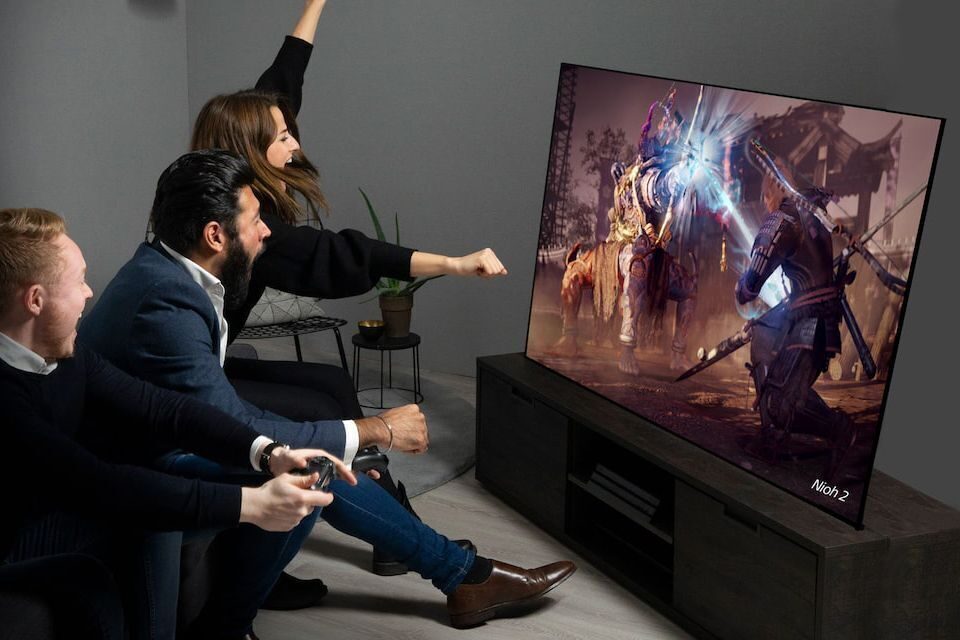Why Upgrading to 4K or 8K TV Is a Game-Changer
Are you thinking about upgrading your home entertainment setup? Choosing the best 4K or 8K TV can transform how you watch movies, play games, or stream your favorite shows. With stunning resolution, vibrant colors, and smarter technology, these TVs offer immersive viewing like never before.

But with so many options on the market, how do you know which TV fits your needs and budget? This guide will walk you through everything you need to know to make an informed choice.
Understanding 4K vs. 8K TV: What’s the Real Difference?
Before we dive into buying tips, it’s important to understand the basics:
- 4K TV: Offers a resolution of 3840 x 2160 pixels, which means four times the detail of Full HD.
- 8K TV: Delivers a resolution of 7680 x 4320 pixels, boasting four times the pixels of 4K and 16 times Full HD.
But is 8K worth it right now? Let’s break down the pros and cons:
Pros of 4K TVs
- More affordable and widely available.
- Excellent picture quality with ample content support.
- Perfect for typical living room sizes.
Pros of 8K TVs
- Ultra-high resolution for massive screens or future-proofing.
- Incredible detail when viewed up close.
- Advanced upscaling of lower resolution content.
Cons of 8K TVs
- Very expensive.
- Limited native 8K content available currently.
- Requires powerful internet bandwidth for streaming.
Top Features to Look for When Buying a 4K or 8K TV
When selecting the perfect TV, focus on these key factors to get the best value and experience:
1. Screen Size and Viewing Distance
- Bigger is better—but only if you can sit far enough back.
- For 4K TVs, a viewing distance of 1.5 times the screen size (in inches) is ideal.
- For 8K TVs, you can sit much closer without noticing pixelation.
2. Display Technology: OLED vs. QLED vs. LED
- OLED TVs offer perfect blacks and infinite contrast — great for cinema lovers.
- QLED TVs use quantum dots to boost brightness and color vibrancy.
- LED TVs are more budget-friendly but may lack the deeper blacks of OLED.
3. HDR (High Dynamic Range) Support
- HDR enhances color and contrast, making images pop.
- Look for TVs that support HDR10, Dolby Vision, or HDR10+.
4. Refresh Rate
- A higher refresh rate (120Hz or more) ensures smoother motion for sports and gaming.
- Some 8K TVs support 120Hz, but most 4K TVs offer it at a more affordable price.
5. Smart TV Features
- Access to streaming apps like Netflix, Amazon Prime, Disney+.
- Voice control integration with Alexa, Google Assistant, or Siri.
- Easy software updates and app stores.
6. Connectivity Options
- HDMI 2.1 ports support the latest gaming consoles and high bandwidth.
- USB ports, Ethernet, and Wi-Fi are essential for flexibility.
High CPC Keyword Section: Best 4K TVs for Gaming and Streaming in 2025
If you want the best 4K TVs for gaming and streaming, here’s what to prioritize:
- Low Input Lag: Crucial for responsive gaming.
- HDMI 2.1 Support: Allows 4K at 120Hz and Variable Refresh Rate (VRR).
- Smart Features: Built-in apps and fast UI for streaming.
Some models to consider in 2025 include:
| Model | Panel Type | Screen Size | Refresh Rate | HDMI 2.1 Ports | Price Range |
|---|---|---|---|---|---|
| Samsung QN90C QLED | QLED | 55-85″ | 120Hz | Yes | $1,200-$3,500 |
| LG C3 OLED | OLED | 48-83″ | 120Hz | Yes | $1,500-$4,000 |
| Sony A80K OLED | OLED | 55-77″ | 120Hz | Yes | $1,500-$3,800 |
| Hisense U8H | QLED | 55-75″ | 120Hz | Yes | $900-$1,600 |
These TVs balance picture quality, gaming performance, and price effectively.
How to Choose the Best 8K TV for Your Home in 2025
8K TVs remain premium and for enthusiasts. Here’s how to decide:
- Screen Size: Ideal for 75 inches and above to truly appreciate 8K resolution.
- Upscaling Power: Look for AI-powered upscaling to convert 4K or HD content closer to 8K quality.
- Content Availability: Currently, 8K content is rare, so a TV with excellent upscaling is essential.
- Price Considerations: Expect prices starting at $3,000 and climbing beyond $10,000.
Recommended 8K TVs include:
| Model | Panel Type | Screen Size | Upscaling Tech | Price Range |
|---|---|---|---|---|
| Samsung QN900C Neo QLED | QLED | 65-85″ | AI Upscaling | $4,000-$15,000 |
| LG Z2 OLED | OLED | 77-88″ | Deep Learning Upscale | $5,000-$20,000 |
| Sony Z9K Master Series | LED | 75-85″ | Cognitive Processor | $6,000-$18,000 |
Practical Tips to Set Up Your New TV for the Best Viewing Experience
Once you have your dream 4K or 8K TV, setting it up right is key:
- Calibrate the picture settings using built-in presets or professional calibration tools.
- Optimize your room lighting to reduce glare and reflections.
- Use quality HDMI cables certified for 4K/8K transmission.
- Position your TV at eye level for comfortable viewing.
- Connect sound systems or soundbars to enhance audio quality.
Frequently Asked Questions (FAQs)
1. Is 8K TV worth buying in 2025?
Right now, 8K TVs are more about future-proofing and ultra-premium experiences. If you want the absolute best image quality and have a large room, 8K might be worth it. Otherwise, 4K offers excellent value with more content.
2. Can I watch 8K content on a 4K TV?
No, 4K TVs cannot display 8K resolution natively. However, 8K TVs can downscale content to fit their resolution.
3. What is the best screen size for a 4K TV?
For 4K, screen size depends on your viewing distance. Generally, 55 to 65 inches suits most living rooms well.
4. Do I need HDMI 2.1 ports on my TV?
If you’re into next-gen gaming or want to future-proof, yes. HDMI 2.1 supports higher frame rates and features like VRR.
5. How important is HDR on 4K and 8K TVs?
HDR greatly improves picture quality by enhancing contrast and color accuracy. Look for TVs with HDR10+ or Dolby Vision support.
Conclusion: Making the Right Choice for Your Home Entertainment
Choosing between 4K and 8K TVs can feel overwhelming, but focusing on your budget, screen size, and intended use will narrow down your options quickly.
- For most people, a high-quality 4K TV with HDR and HDMI 2.1 is the sweet spot.
- If you crave the absolute best and have the budget, an 8K TV with top-tier upscaling might be the perfect investment.
- Always consider your viewing environment and the devices you connect to your TV.
With this guide, you’re now equipped to pick a TV that will elevate your entertainment setup for years to come.
If you want to explore detailed TV reviews and pricing updates, visit Rtings.com.
To learn more about HDMI 2.1 technology, check out this comprehensive overview from CNET.
If you’d like, I can also help create a downloadable comparison chart or suggest more personalized TV picks based on your room size and budget. Just ask!


